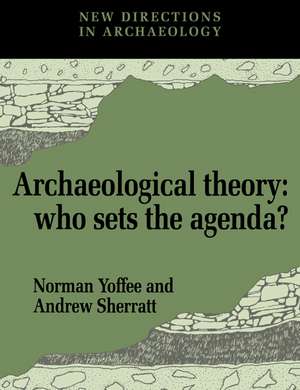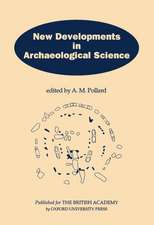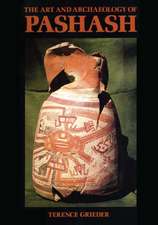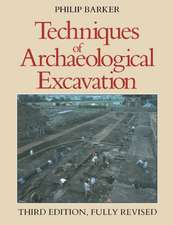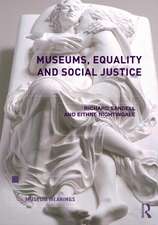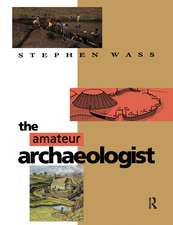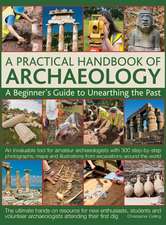Archaeological Theory: Who Sets the Agenda?: New Directions in Archaeology
Editat de Norman Yoffee, Andrew Sherratten Limba Engleză Paperback – 21 iul 1993
Din seria New Directions in Archaeology
-
 Preț: 237.68 lei
Preț: 237.68 lei -
 Preț: 391.19 lei
Preț: 391.19 lei -
 Preț: 325.50 lei
Preț: 325.50 lei -
 Preț: 291.30 lei
Preț: 291.30 lei -
 Preț: 392.18 lei
Preț: 392.18 lei -
 Preț: 287.56 lei
Preț: 287.56 lei -
 Preț: 391.19 lei
Preț: 391.19 lei -
 Preț: 308.34 lei
Preț: 308.34 lei -
 Preț: 407.42 lei
Preț: 407.42 lei -
 Preț: 382.89 lei
Preț: 382.89 lei -
 Preț: 389.84 lei
Preț: 389.84 lei -
 Preț: 288.04 lei
Preț: 288.04 lei -
 Preț: 322.62 lei
Preț: 322.62 lei -
 Preț: 313.85 lei
Preț: 313.85 lei -
 Preț: 284.56 lei
Preț: 284.56 lei -
 Preț: 285.54 lei
Preț: 285.54 lei -
 Preț: 288.62 lei
Preț: 288.62 lei -
 Preț: 282.10 lei
Preț: 282.10 lei -
 Preț: 282.10 lei
Preț: 282.10 lei -
 Preț: 285.16 lei
Preț: 285.16 lei -
 Preț: 284.17 lei
Preț: 284.17 lei -
 Preț: 285.93 lei
Preț: 285.93 lei -
 Preț: 293.42 lei
Preț: 293.42 lei -
 Preț: 284.56 lei
Preț: 284.56 lei -
 Preț: 287.87 lei
Preț: 287.87 lei -
 Preț: 287.48 lei
Preț: 287.48 lei -
 Preț: 205.53 lei
Preț: 205.53 lei -
 Preț: 285.16 lei
Preț: 285.16 lei -
 Preț: 284.98 lei
Preț: 284.98 lei -
 Preț: 285.16 lei
Preț: 285.16 lei -
 Preț: 285.16 lei
Preț: 285.16 lei -
 Preț: 283.79 lei
Preț: 283.79 lei -
 Preț: 284.56 lei
Preț: 284.56 lei -
 Preț: 282.26 lei
Preț: 282.26 lei -
 Preț: 285.37 lei
Preț: 285.37 lei -
 Preț: 286.13 lei
Preț: 286.13 lei -
 Preț: 297.58 lei
Preț: 297.58 lei
Preț: 284.39 lei
Nou
Puncte Express: 427
Preț estimativ în valută:
54.42€ • 56.82$ • 44.94£
54.42€ • 56.82$ • 44.94£
Carte tipărită la comandă
Livrare economică 15-29 aprilie
Preluare comenzi: 021 569.72.76
Specificații
ISBN-13: 9780521449588
ISBN-10: 0521449588
Pagini: 152
Ilustrații: 14 b/w illus.
Dimensiuni: 189 x 246 x 12 mm
Greutate: 0.37 kg
Editura: Cambridge University Press
Colecția Cambridge University Press
Seria New Directions in Archaeology
Locul publicării:Cambridge, United Kingdom
ISBN-10: 0521449588
Pagini: 152
Ilustrații: 14 b/w illus.
Dimensiuni: 189 x 246 x 12 mm
Greutate: 0.37 kg
Editura: Cambridge University Press
Colecția Cambridge University Press
Seria New Directions in Archaeology
Locul publicării:Cambridge, United Kingdom
Cuprins
Introduction: The sources of archaeological theory Norman Yoffee, and Andrew Sherratt; Part I. The Social Context of Archaeological Theory: 1. Limits to a post-processual archaeology (or The dangers of a new scholasticism) Philip L. Kohl; 2. A proliferation of new archaeologists 'Beyond objectivism and relativism' Alison Wylie; 3. Ambition, deference, discrepancy, consumption; the intellectual background to a post-processual archaeology Christopher Chippendale; Part II. Archaeological Theory from the Paleolithic to the State: 4. Ancestors and agendas Clive Gamble; 5. After social evolution: a new archaeological agenda? Stephen Shennan; 6. Too many chiefs? (or, Safe texts for the 90s) Norman Yoffee; Part III. Case-Studies in Archaeological Theory and Practice; 7. When is a symbol archaeologically meaningful? Meaning, function and prehistoric visual arts Kelley Hays; 8. Re-fitting the 'cracked and broken facade': the case for empiricism in post-processual ethnoarchaeology Miriam Start; 9. Communication and the importance of disciplinary communities: who owns the past? Tim Murray; Part IV. Postscript and Epilogue: 10. The relativity of theory Andrew Sherratt; 11. Archaeology: the loss of nerve Richard Bradley.
Recenzii
'I recommend this provocative volume, in which I found much to think about, not least Sherratt's plea that archaeologists - not the media, tour managers or politicians - should be the ones who set the agenda.' Nick Saunders, New Scientist
Descriere
This volume assesses current archaeological theories and considers how they relate to our understanding of the past.
